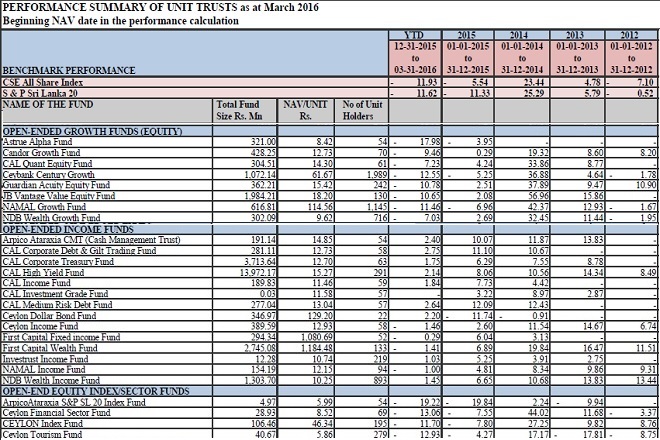Reuters: Sri Lankan shares edged down on Tuesday as investors sold banking and large cap stocks amid lack of new catalysts for buying risky assets, and on concerns over foreign investment outflows and rising interest rates.
The benchmark Colombo stock index ended 0.04 percent, or 2.34 points, weaker at 6,550.51, its lowest close since April 29. The index declined 0.94 percent during last week.
"Not much of retail activities in the market," said Atchuthan Srirangan, a senior research analyst at First Capital Equities (Pvt) Ltd.
Analysts said market sentiment was weak as investors were waiting for catalysts such as a big foreign direct investment or initial public offering or inflows from the International Monetary Fund.
Rising interest rates also weighed on the market with treasury bill yields rising between 5 and 27 basis points to near three-year highs at a weekly auction last Wednesday, despite the central bank leaving key policy rates steady for a third straight month.
Foreign investors have been net sellers of 5.58 billion rupees ($37.75 million) worth of equities so far this year, but they bought a net 49.7 million rupees worth of shares on Tuesday, the first net foreign inflow in five straight sessions.
Turnover stood at 700.3 million rupees, lower than this year's daily average of around 795 million rupees.
Shares in biggest listed lender Commercial bank of Ceylon Plc fell 0.93 percent while those in Hemas Holdings Plc dropped 2.93 percent and Distilleries Company of Sri Lanka fell 0.92 percent, dragging the index down.
Shares in top conglomerate John Keells Holdings, ended steady and accounted for 48 percent of the day's turnover.
(Reporting by Ranga Sirilal and Shihar Aneez; Editing by Anupama Dwivedi)
The benchmark Colombo stock index ended 0.04 percent, or 2.34 points, weaker at 6,550.51, its lowest close since April 29. The index declined 0.94 percent during last week.
"Not much of retail activities in the market," said Atchuthan Srirangan, a senior research analyst at First Capital Equities (Pvt) Ltd.
Analysts said market sentiment was weak as investors were waiting for catalysts such as a big foreign direct investment or initial public offering or inflows from the International Monetary Fund.
Rising interest rates also weighed on the market with treasury bill yields rising between 5 and 27 basis points to near three-year highs at a weekly auction last Wednesday, despite the central bank leaving key policy rates steady for a third straight month.
Foreign investors have been net sellers of 5.58 billion rupees ($37.75 million) worth of equities so far this year, but they bought a net 49.7 million rupees worth of shares on Tuesday, the first net foreign inflow in five straight sessions.
Turnover stood at 700.3 million rupees, lower than this year's daily average of around 795 million rupees.
Shares in biggest listed lender Commercial bank of Ceylon Plc fell 0.93 percent while those in Hemas Holdings Plc dropped 2.93 percent and Distilleries Company of Sri Lanka fell 0.92 percent, dragging the index down.
Shares in top conglomerate John Keells Holdings, ended steady and accounted for 48 percent of the day's turnover.
(Reporting by Ranga Sirilal and Shihar Aneez; Editing by Anupama Dwivedi)

